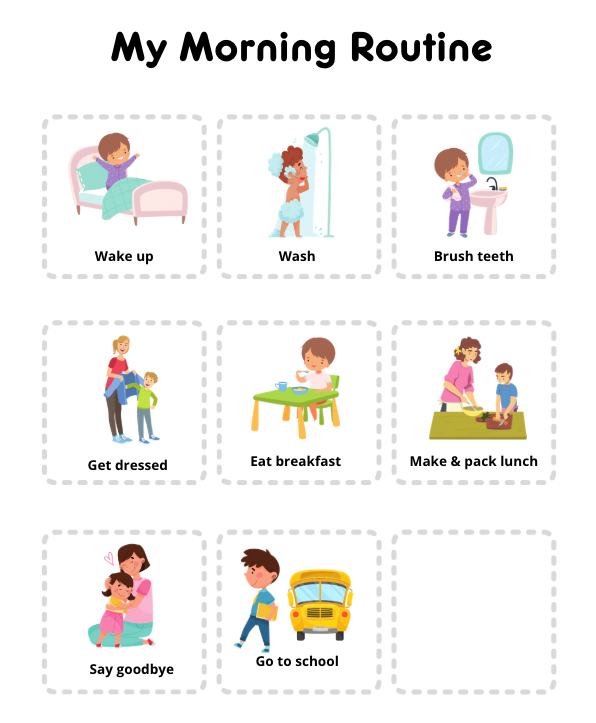Practical ADHD Parenting Tips to Make Routines Feel Easier
If you’re a parent raising a child with ADHD, you know that every day can bring both beautiful moments and big challenges. On our Help! I Have Kids podcast, Pam sat down with Mental Health Therapist Allison Leip to unpack ADHD — not as a list of symptoms or struggles, but as a deeper understanding of how these kids experience the world.
ADHD is not a lack of focus — it’s a difference in focus. Kids with ADHD can focus deeply on what they love, but may struggle when something doesn’t feel engaging or rewarding. And as parents, that can be hard to navigate.
So often, we focus on what’s going wrong instead of what’s going right. At Marshall Pediatric Therapy, we believe that your child’s brain isn’t broken — it’s just wired differently. When we begin to see their differences as strengths, everything changes.
When a child with ADHD is overwhelmed, impulsive, or easily frustrated, it’s easy to focus on the surface-level behaviors. But behavior is communication. These moments are often your child’s way of saying, “I’m struggling and I need help.”
Occupational therapists and mental health therapists can help uncover what’s underneath those behaviors — sensory needs, emotional regulation challenges, or difficulties with transitions — and create tools that work for your unique family.
Therapy can help kids find calm, parents find confidence, and families find balance.
Don’t Let the World Ruin Your Child’s Light
Pam shared a powerful piece of advice that she received when she was seeking help for her son with adhd “Don’t let the world ruin your child.”
It’s easy to forget how often children hear words like “no,” “stop,” “sit down,” or “be quiet.” Over time, those constant corrections can chip away at a child’s joy and confidence.
But as parents, you have the power to protect that light. Every child is born with a beautiful soul — full of curiosity, energy, and creativity. The world may not always understand your child’s uniqueness, but you can be their encourager — the one who helps them see their strengths instead of their struggles.
We also know — the behaviors are hard to deal with daily. It’s exhausting when every routine feels like a battle. But as a mom (or dad), you can find strategies that don’t trigger those hard moments. That’s where Occupational Therapy and Mental Health support come in.
Our therapists help families reorganize routines, set up environments for success, and uncover each child’s unique strengths. When you find what your child loves — what motivates them and makes them feel capable — you can use that to their advantage. That’s when we start to see real progress and peace at home.
Practical Tips for Parenting a Child with ADHD
Every family is different, but small changes can make big differences in your daily rhythm. Here are a few practical strategies that can help your mornings, routines, and transitions go more smoothly:
Organize their space for success.Keep their room simple and clutter-free, with labeled bins or baskets for toys, clothes, and school supplies. Their clothes bin can be right where they take their clothes off every day so that they avoid leaving them on the ground. Taking their shoes off as soon as they enter the house so they know exactly where they are when they leave the house.
Visual Schedules- Set up predictable routines. Kids with ADHD thrive on structure. Try keeping the order of morning and bedtime tasks the same every day — like eat breakfast → brush teeth → get dressed → pack backpack. Predictability helps reduce stress for both of you. To help keep them on track, create a visual schedule in parts of the house where the tasks are performed.

You can find these customizable templates on canva!
Get ready in the same room. If your child struggles to stay on task, try doing the morning routine together. Being nearby allows you to gently redirect and encourage them without constant reminders that can feel frustrating.
Offer fidgets or movement breaks. A small fidget, like a stress ball or putty, can help your child’s hands stay busy and their mind stay focused during school or homework time.
Work with the school for support. If your child needs accommodations, talk to their teacher, school counselor, or therapist about how to request those formally. Things like extra movement breaks, a quiet space for testing, or visual reminders can make a world of difference.
And if you’re not sure where to start — that’s exactly where our team can help. Our occupational and mental health therapists are experienced in helping families build personalized routines and advocate for the supports your child needs at school and at home.
You Don’t Have to Navigate ADHD Alone
If you’ve been feeling overwhelmed, know that you’re not alone — and that help can make a difference. Our team at Marshall Pediatric Therapy offers Occupational Therapy, Mental Health Therapy, and Psychological Services designed to help your family build skills for life.
Let’s find the right supports for your child — from evaluation to ongoing therapy. Request an appointment today to get started.
🎧 Listen to the full conversation: Catch this episode of Help! I Have Kids — “ADHD Unpacked with Mental Health Therapist Allison Leip” — to hear more insights and encouragement from Pam and Allison.
Help! I Have Kids Podcast)